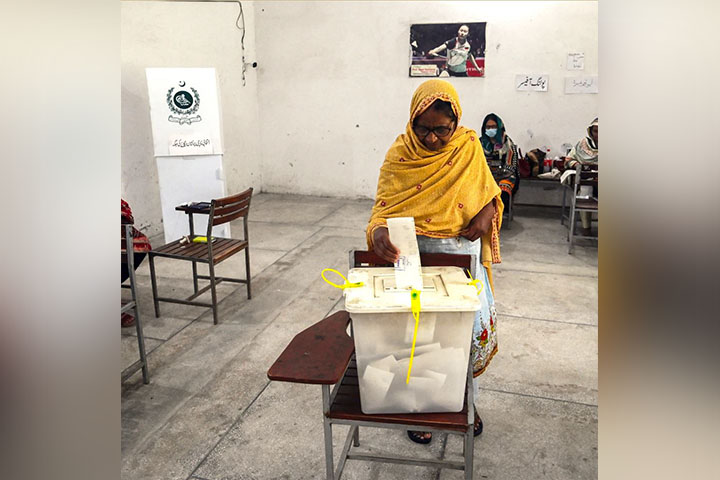Allegations of poll rigging begins in Pakistan

Allegations of manipulating the electoral process have once again become the talk of the town in Pakistan as the politically unstable country goes to the polls early next year. Pakistan has a long record of rigged elections since its independence, where its powerful military played a central role. “Since 2018, we have lost too much political space to the military establishment,” said political analyst Arifa Noor.
Pakistan has swung between military and civilian rule since its independence from the colonial British India. The Military has directly ruled Pakistan for roughly half of its 75-year history while ensuring its tight control over the civilian governments the rest of time.
The 2018 elections were the most controversial elections Pakistan saw, thanks to pre-poll rigging, vote buying, crackdown on news media and kidnappings. There were direct allegations that the Pakistani army had supported cricketer-turned-politician Imran Khan to win the elections and become the prime minister.
Leaders from other parties said their members were forced to join Khan’s party using the threats of corruption charges. They also alleged their polling agents were evicted by security officials before the final tally was made. Aqil Shah, political scientist at Oklahoma University, said “If what most political parties are alleging is true. It would be the biggest theft of an election since the 1970s.”
Several media personnel were threatened and abducted as their news coverage angered the establishment, a common euphemism in Pakistan to refer to the army. The manipulation by the army included prohibiting specific candidates from contesting elections, censoring news outlets, and blocking political rallies.
Prominent journalist Gul Bukhari was kidnapped and released later, which by perceived by many as a message by the military to journalists.3 Even international election observers were tried to be kept away from the electoral process. “We have never had a situation like this in any of our 150-plus missions,” said Dmitra Ioannou, the deputy chief observer for the EU observation mission.
While Imran Khan won the 2018 elections, many observers claimed that the real power remained with the army. Interestingly, the same army led to the downfall of the Khan, who was forced to resign in early 2022, and now languishes in jail. Now, he opposes the military interference in the elections. “I categorically oppose the involvement of the army in politics, and in the future they must stay away from politics in Pakistan,” he said.
In 2013, similar allegations were made by Khan. He had vowed not to support the army in order to hold free and fair elections in Pakistan. The 2008 elections too could not remain unaffected by the allegations of rigging “The pre-election period was marred by widespread electoral manipulation and a concerted attempt by the government to prevent or reduce the scale of an opposition victory,” found Human Rights Watch.
UK Department for International Development (DFID) observed that the 2008 elections were neither free nor fair, which were important in the wake of the transition of power from military to civilian set-up. “Military dictators have used and manipulated elections to consolidate and legitimise executive power and their own position as well as to embrace a return, periodically, to civilian rule,” it said.
The Local Government Ordinance (LGO), which was brought by a military government led by General Parvez Musharraf in 2001 was designed to undermine the powers of the provincial governments and legislatures and to neutralize the opposition parties, said Washington-based Urban Institute Centre on International Development and Governance. “Central government manipulation ensured that local government elections in 2001 and 2005 were neither free nor fair,” it said.
The Election Commission of Pakistan has historically colluded with the civil-military bureaucracy to manipulate polls, said the International Crisis Group. “Polling procedures are often manipulated; accountability mechanisms for candidates and political parties seldom employed; and the electoral code of conduct routinely flouted,” it said.
Now, that Pakistan is set to hold fresh elections in January 2024, there are strong apprehensions over the transparency in the process. Many find problems in delays in holding elections, rigged voter lists, and involvement of the army. Even the Human Rights Commission expressed concerns about the scope for institutions to manipulate the electoral process.15 “What is happening is the biggest pre-poll rigging ever in the history of Pakistan,” said Zulfi Bukhari, a former minister.
Source: Thepakmilitarymonitor
Comments

 Live Tv
Live Tv
